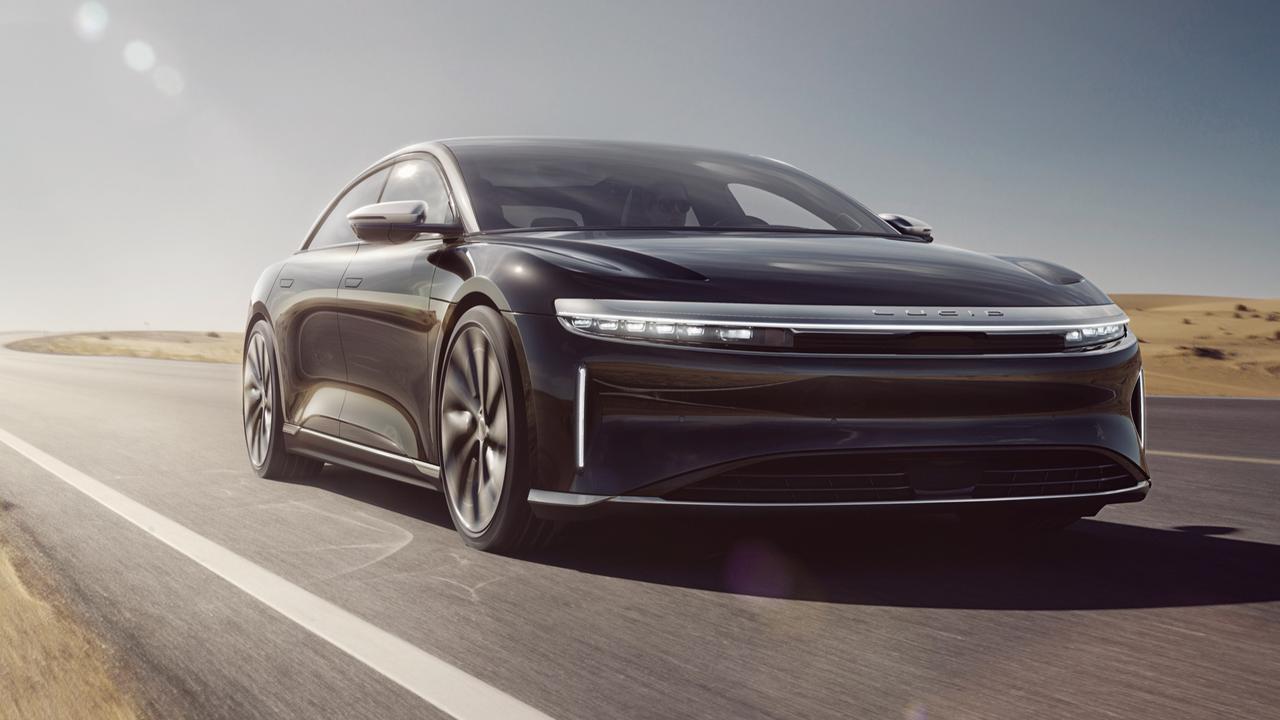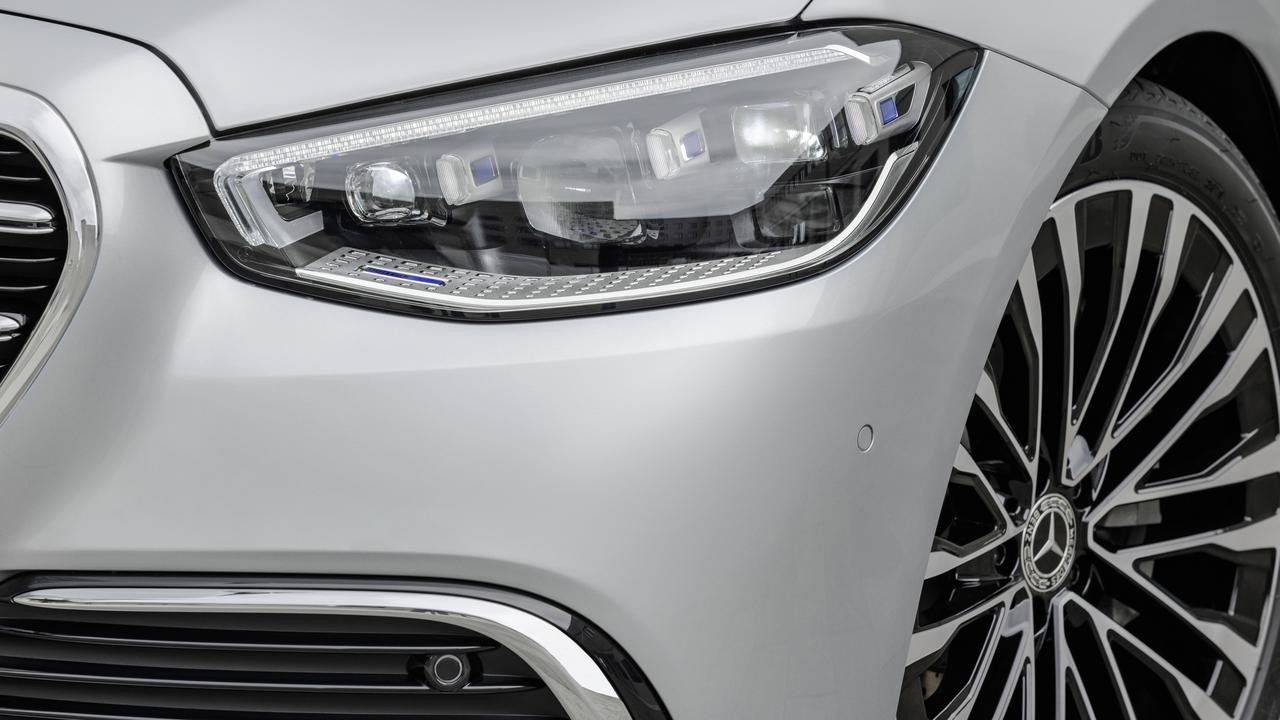Tested: Hyundai Ioniq hybrid, a rival to the Toyota Prius
Hyundai’s Ioniq hybrid is making its Australian debut — 21 years after Toyota’s Prius and two years after its global launch — and is having a slow start, initially selling only to fleets.
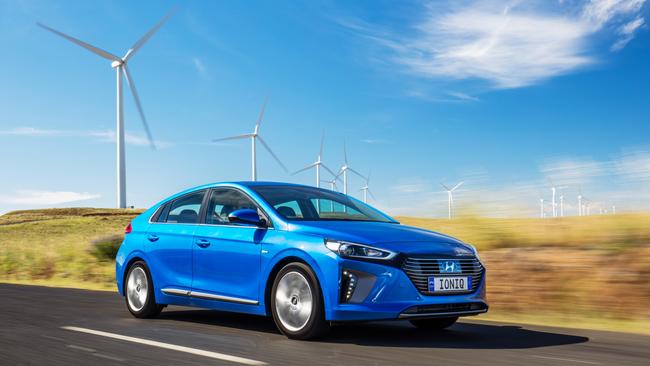
MEET Hyundai’s answer to the Toyota Prius — 21 years after the world’s biggest selling hybrid went on sale. The Ioniq is off to a slow start in Australia, initially available only to fleets and due in showrooms mid-year.
As with the Toyota, the body is teardrop-shaped to help it slip through the air and it’s powered by a frugal petrol engine paired with an electric motor.
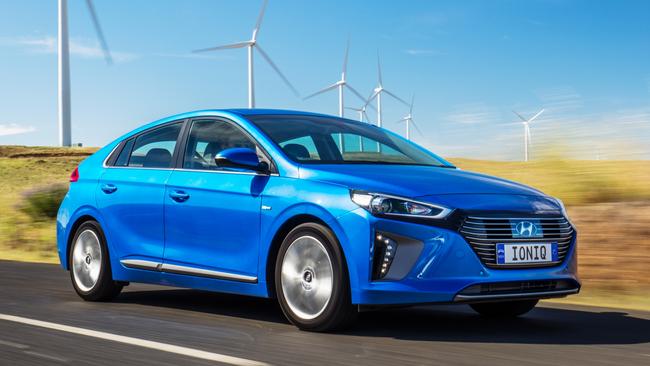
The Ioniq, also in common with the Prius, has an on-board battery pack that charges itself when coasting down hills or braking.
This gives it enough juice to power the electric motor when moving the car from rest, or give it a boost on the move.
When the Ioniq hybrid goes on sale in Australia — two years after its overseas showroom debut — it will also be joined by plug-in hybrid and pure electric versions, with 50km and 280km of petrol-free driving range respectively.
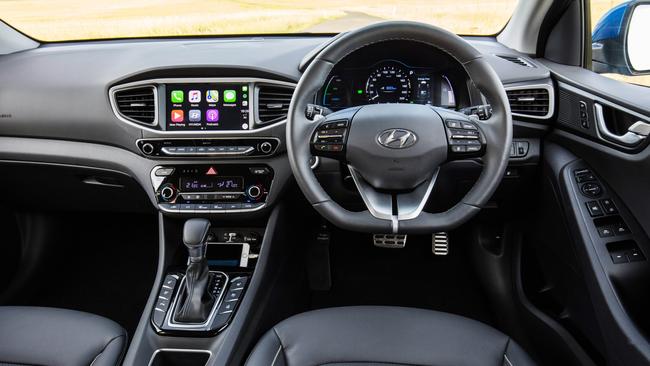
Toyota opted for a more daring design so the Prius and its owners stand out from the crowd. The Ioniq has a more conventional appearance, the better to blend in with the traffic.
The interior looks like pretty much any small Hyundai, with lots of grey plastic — except for the fancy digital instrument screen that displays hybrid information and can be switched to a sport display.
Cabin fit and finish are good, there’s ample storage space in the doors, console and glovebox but most of the materials look and feel cheap with the exception of the soft-touch technical grain on the dash and doors.
As Hyundai’s technology pin-up, the Ioniq (we tested the Premium edition with leather seats and sunroof) could be expected to have more wow factor inside.
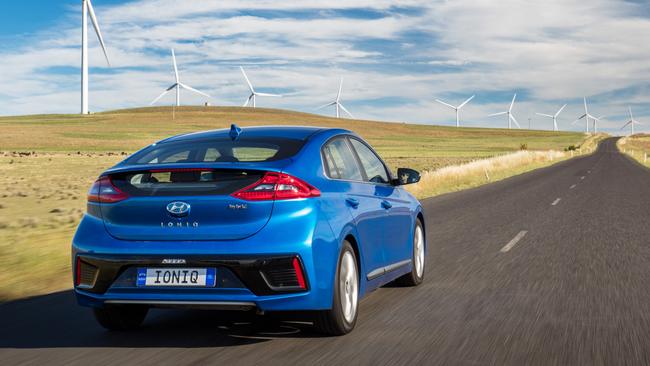
As the top end of the Ioniq range it has a full suite of safety equipment — autonomous emergency braking, lane keeping and lane changing assistance, blind spot warning, rear cross traffic alert, front and rear parking sensors, rear camera, radar cruise control, rain sensing wipers and tyre pressure monitors. If the worst should happen, occupants are protected by seven airbags and a five-star safety rating.
In the rear, there are two Isofix child seat mounting points and three top tether hooks, and the seats fold down to create a massive, flat cargo area. Hyundai should be commended for fitting a full-size spare.
ON THE ROAD
The Ioniq steers well and the tyres and suspension provide a good blend of comfort over bumps and precision in corners.
Shod with Michelin tyres — as with the Camry Hybrid — it’s one of the better Hyundais to drive. Acceleration is on par with the Camry Hybrid (0-100kmh in about 10 seconds on our GPS timing equipment). Sport mode trims about half a second from that time but the gear shifts are more abrupt.
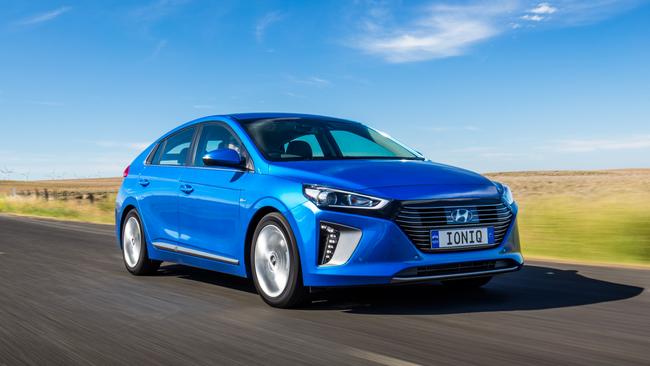
The Ioniq uses a twin-clutch automatic transmission as opposed to the Prius’s continuously variable transmission.
For those inclined to take more control over their driving, the Ioniq has shift paddles on the steering wheel, so you can trim up or down quickly to either save fuel or exploit more performance.
The only real downside to this transmission is when making a U-turn. When shifting between reverse and drive (and vice versa) the car rolls downhill, necessitating some fancy footwork to quickly apply the brakes — it’s especially inconvenient when inching out of a tight spot.
The almost horizontal rear window lacks a wiper so rear vision isn’t ideal in the rain.
After 400km of what the car told us was “66 per cent economical driving, 30 per cent normal driving and 4 per cent aggressive driving” we averaged 5.0L/100km.
That’s 25 per cent more than the Green Vehicle Guide’s rating label and on par with our figures for the much bigger Camry. The Ioniq runs on regular unleaded and the Camry insists on 95 RON premium unleaded.
VERDICT
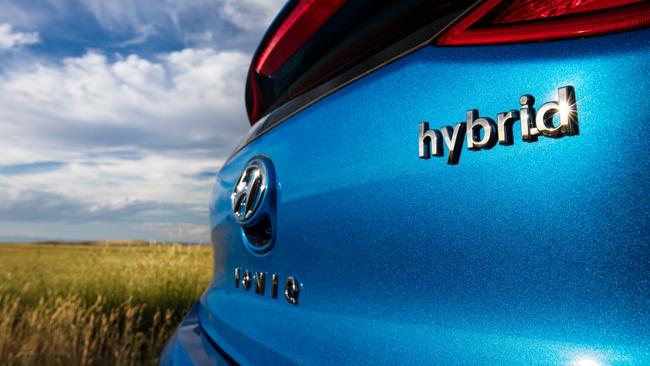
A solid first effort and worth a look if it’s priced close to $30,000. If the RRP is closer to $35,000, be sure also to take a Toyota Camry Hybrid for a test drive.
HYUNDAI IONIQ
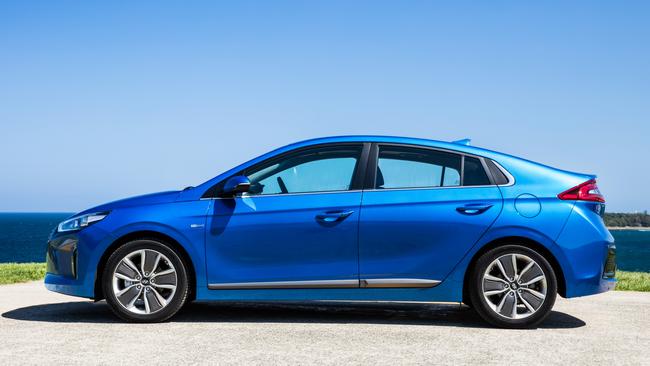
PRICE From $35,000 (estimated)
SERVICE/WARRANTY 5 years/unlimited km, service intervals and cost not yet announced (warranty good)
ENGINE 1.6-litre 4-cyl, electric motor, 104kW/265Nm combined (good)
SAFETY 5 stars, 7 airbags, AEB, lane keep assist, rear cross traffic alert, and more (good)
THIRST 3.9L/100km (claimed; 5.0L on test; fair)
SPARE Full-size alloy (excellent)
BOOT 456L (good)


